INTRODUCING THE 2020 IDA AND CBPA FELLOWS
This year, IDA will be offering two fellowships for students interested in exploring the arts at the intersection of race and social justice: our ongoing IDA Fellowship Program and a newly added fellowship with the Committee on Black Performing Arts, the CBPA Fellowship Program. And it’s with great joy and excitement that we introduce our new cohort of incredible artists-activists, our 2020 CBPA and IDA fellows. Follow us on Instagram as we share more of their art practice in the coming days.
IDA FELLOWSHIP
The IDA Fellowship is a year-long paid program for undergraduate students from diverse backgrounds, creative disciplines and majors. This fellowship program provides support from a close-knit creative community, time for generative arts’ practice; alongside professional development and deepening of social justice principles. Our new 2020 IDA Fellows are…
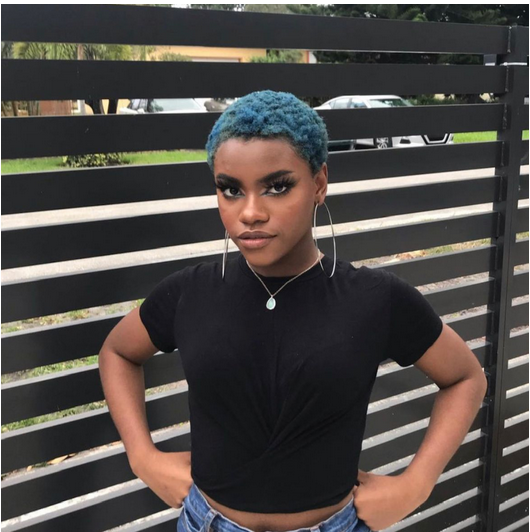
Stara D’Haiti ’24 is a makeup artist considering majors in Physics, Energy Resources Engineering and Earth Systems. She uses make-up as a storytelling device to think critically about standards of beauty, self-love, identity, vulnerability, acceptance and creativity. This year she will be building out her portfolio as a makeup artist, while exploring her practice as an act of social practice and self-transformation. “As I’ve grown my skill, I’ve found a rather unique way to depict various aspects of the human experience”, the artist says. “Whether it’s recreating fictional characters, doing looks based on my friends’ personalities, or commemorating a particular moment/event. I’ve found the most value not in the results, but in the process”. She continues, “I believe self-awareness is the first step in transformation and allowing yourself time for proper introspection is something a practice like makeup can inspire”.
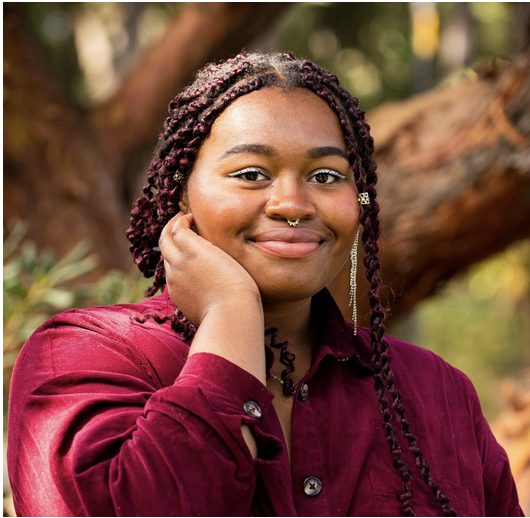
Kiara Dunbar ’22 is a poet majoring in Feminist, Gender and Sexuality Studies. Their poetry charts the ways misogynoir, queer and transphobia, and fatphobia influences our relationship to womanhood and the formation of gender identity. This year through the IDA Fellowship Kiara will continue work on their first poetry collection entitled, “i am not a girl!”; an archival work for Black, queer and trans youth. “I use my arts practice to write for Black gender-marginalized folks – following in the legacies of Black women like Audre Lorde, June Jordan, and Nikki Giovanni – I write to cultivate an image centering love, community, and Black feminist traditions…learning, uplifting, and memorializing our experiences and preserving our narratives”.
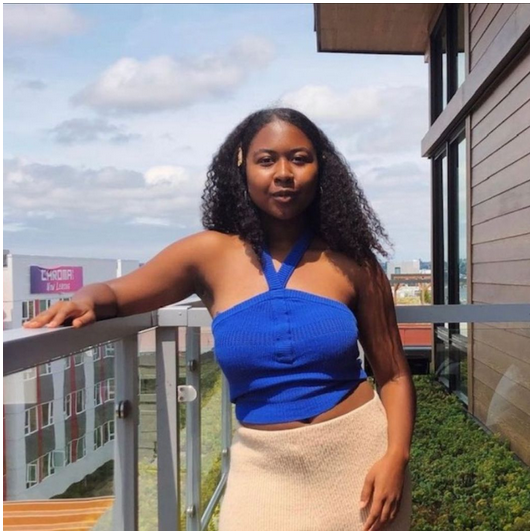
Alexis Mack ’22 is a sustainable fashion creative with roots in organizing for ecofeminism. Her art is deeply rooted in activism, is pro-black, futurist, anti-discriminatory and pro- class liberation. Alexis will be designing and creating a collection that is fully recycled, gender neutral, size inclusive with all profits going to projects of wealth redistribution for BIPOC individuals. “My goal is to both push people to consume less and create more beyond the norms of capitalism and Eurocentric norms. Collective resistance is at the core of what is valuable to me”.
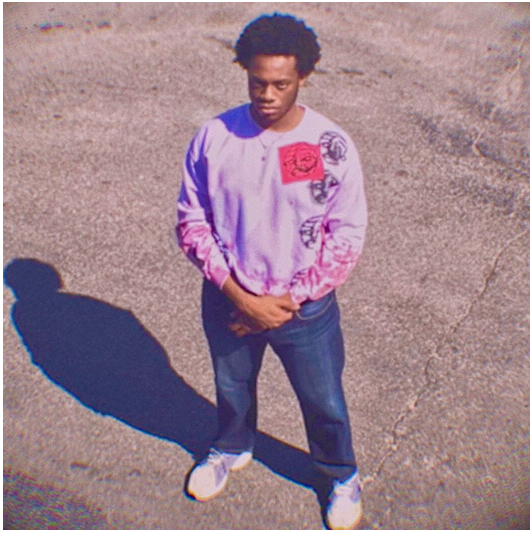
Osadolor Osawemwenze ’24 is a visual artist, graphic designer and creator of the podcast ‘a coming of age, but irl‘ He uses his platform to comment on issues impacting today’s youth. He analyzes covert forms of oppression normalized in the media to spark dialogues centered around BIPOC voices and all marginalized groups. He also explores social issues through a pop culture related lens to offer entertaining insight on current trends. Osadolor will be working on a new podcast centering youth exploration of the African diaspora. The artist notes: “Through my podcast, I would examine the music and fashion that pushes the Alté Cruise movement further into fruition and the creatives, such as Odunsi the Engine, Santi, and Mowalola, that utilize their personal relationship with Nigeria and the western world to explore what it truly means to be “African” in this modern age.
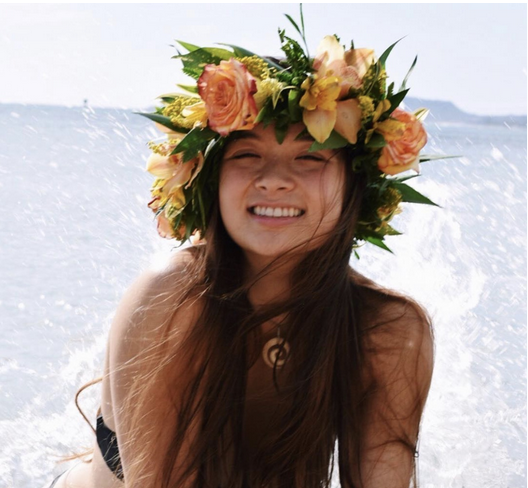
Anuhea Parker ’22 is a poet and actor majoring in Management Science and Engineering. She will create a chapbook of poetry that speaks to her experience as a mixed Native Hawaiian, with the long-term goal of writing comic books and children books about Native Hawaiian history and mythography. Revitalizing her cultural traditions and values is at the heart of her art practice. “Hawai’i has instilled in me the lifelong value of aloha, a term used to underline the importance of altruistic love. I use this value to carry me through all of my interactions. I found the most useful thing in my life is to constantly educate myself about the experiences and histories of other people, and make sure, as an indigenous person, to educate others about my own experiences.”
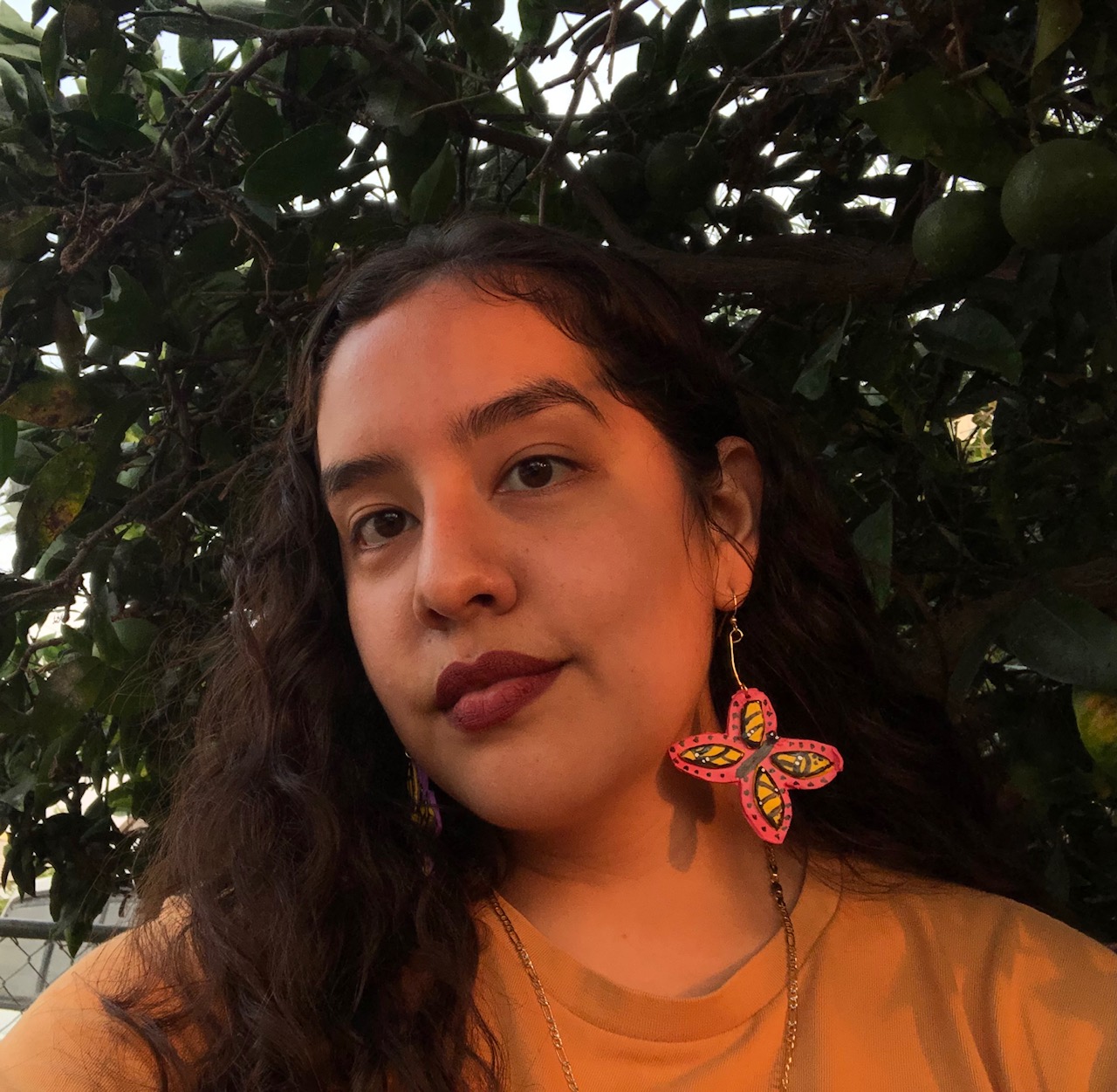
Melissa Rivera ’21 is a painter and poet majoring in CSRE. They plan to create a prayer book which will include paintings that encompass their hopes for a future in which the abolition of oppressive systems is a reality. Recognizing the power of intention in manifesting a new radical reality, Melissa is envisioning a world where boundaries are redefined, all the possibilities of one’s gender are realized, and the prevailing importance of ritual and memory are incorporated into our everyday lived experience. The artist notes: ” The women of color in my life have taught me that I am capable of believing in things that are greater than me. Queer and trans Black, Indigenous, and folks of color have taught me that pushing and recreating boundaries is possible.”
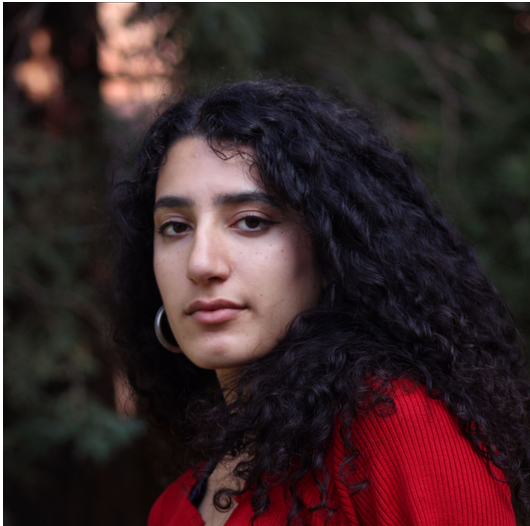
Maya Salameh ’22 (IDA student co-chair) is an award-winning poet and a published author. She is a 2016 National Student Poet, the nation’s highest honor for youth poets, and has performed at venues including the Obama White House and Carnegie Hall. Syrian by way of San Diego, Maya is a psychology major whose work centers around the intersection of creativity and citizenship, articulating Arab-American culture, conflict and consciousness. She explores themes of desire, religion, diaspora, imperialism, intergenerational femininity and the hyphenated Arab body. Last year’s inaugural Artist in Residence at the Markaz Cultural Center, Maya is currently working on a book, habibi and her first full-length collection, blood work. She is also particularly interested in the uses of dance and traditional jewelry in maintaining legacies of grace.
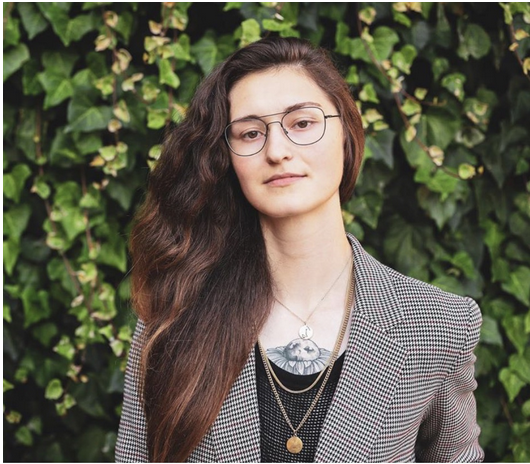
Jamie Seney ’21 is a senior majoring in Art Practice whose visual work includes drawing and painting. Jamie plans on using this fellowship to create a visual prayer book and altar as sites that hold the energies and uplift the experiences of people living in poverty. The artist plans to return to their family’s trailer, abandoned almost a decade ago, to begin this work— creating an altar in collaboration with the community as an invitation for folks to engage in healing ritual and reclamation. “My art is rooted in bittersweet tones, ones that sting a little but you can’t help but decide are very beautiful.” This year, alongside the IDA fellowship Jamie will be completing an honors thesis in Art and Art History.
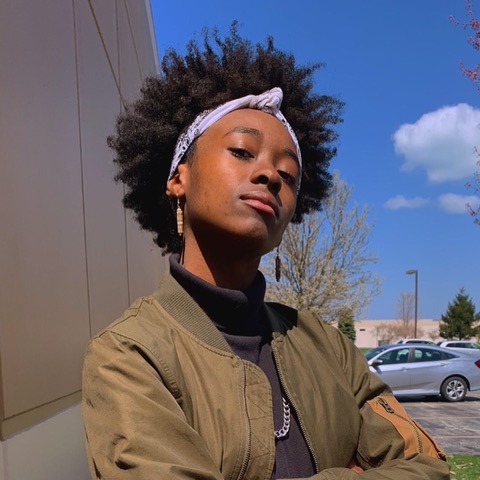
Angel “Ace” Smith ’21 (IDA student co-chair) is a multimedia artist, writer, poet and musician majoring in African and African American Studies. Ace seeks to create art that honors their ancestors as well as honors what kind of ancestor they would like to be. Ace creates from a lens of healing. Their art comes from a place where both emotions and spirituality reside. The artist notes: “taking really deep and lasting breaths has enhanced my ability to see much more of the physical realm than I ever have before. I am better able to bring into focus, various representations of Spirit. For me that’s what Spirit is: Spirit is all around us, Spirit is energy, a moving force we breathe into ourselves. Breath has allowed me to connect to Spirit. This is the root of my artistic practice”.
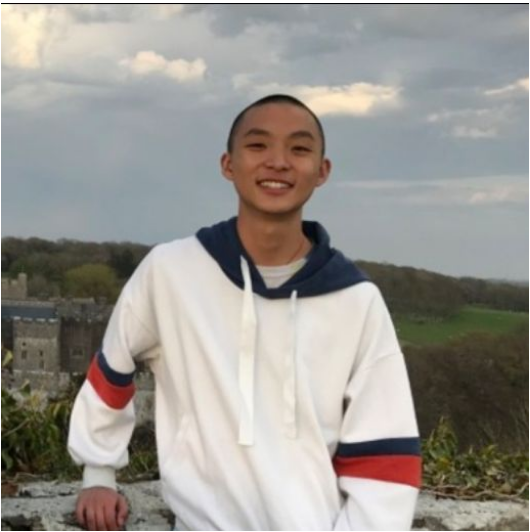
Matta (Matthew) Zheng ’22 is a drag performance artist majoring in Anthropology and Political Science. Currently titled “She Jin-Ping”, Matta’s proposed project is a comparative study of the Communist Party of China and the American empire as a drag photo series and short film. Relying heavily on drag techniques from traditional Beijing Opera, as well as the political aesthetics of Mao’s Cultural Revolution, Matta will create a satirical persona which critics the gender and national identity of the political leader (ergo, “She Jin-Ping”). The artist’s aim is to “substantively add to and disrupt mythic discourses of East-West rivalry, xenophobia, and citizenship through parody and reorientation.”
THE CBPA FELLOWSHIP
Led by CBPA Artistic Director, Amara Tabor-Smith, the CBPA Fellowship Program is a year-long paid program centering the experiences of Black identified, Afro-Latinx, Afro-Indigenous, African and Caribbean undergraduate and graduate students. In this performance and movement-based fellowship, students will develop their artistic practice rooted in experimental Black performance and ritual spirituality. Below, our new 2020 CBPA Fellows:
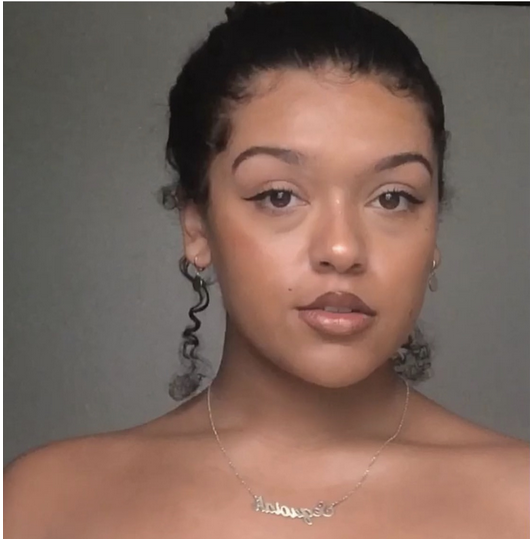
Sequoiah Blaire ’22, is a playwright, actor and director majoring in African and African American Studies. She will be writing a screenplay which features two Black sisters on a road trip from the deep South to the Pacific Northwest retracing their family history. A tale of discovery of what home and healing means for Black Women, the screenplay will further highlight the necessity for Black women to invest in their own spiritual growth as an act of outside and inside care. “I want to nurture my practice through all stages” the artist says. “I am stepping into waters that have always called me.”
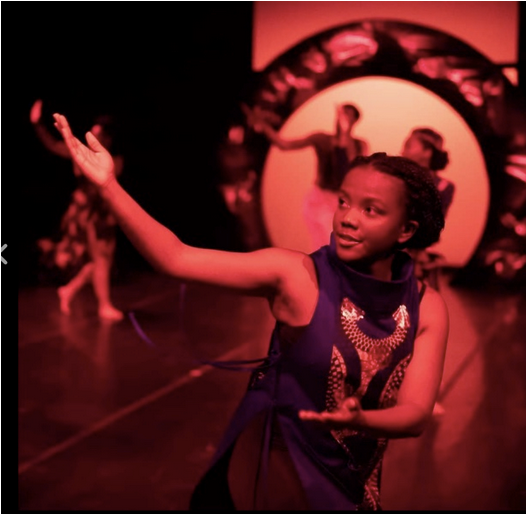
Imani N’Cube ’21 is a dancer, singer/songwriter and music producer who is majoring in African and African-American studies. She will be writing songs and releasing her debut music EP as part of the CBPA fellowship. Imani’s artistic journey this year will entail strengthening her abilities as a music producer, creating visual art, as well as learning better how to promote her work. Imani grounds her work in community with other artists and through ritual. The artist states: “I think my own contributions to Black and indigenous liberation is through ancestral recognition, reverence, and healing. My hope is that with this framework, I can work to heal from what has been done and be very careful about not upholding these oppressive ideals with the people in my life and those yet to come.”
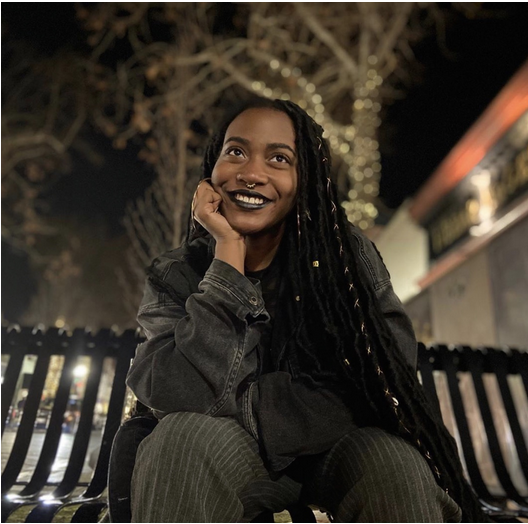
Allison Oddman ’21 is a poet, filmmaker and playwright majoring in African and African American studies. Allison will be working on a choreopoem entitled “I AM: Tell Me Who, Tell Me What” that follows a Black woman’s journey to find her name. It is a work that seeks to expose what Black womanhood looks like in a decolonized world and the tendency of history to exclude Black people of marginalized genders in matters of liberation. The artist states: “I apply an anti-colonial lens to everything I do and experience. It is this anti- colonial lens that has allowed me to begin the work of undoing anti-Black and anti-Indigenous racism. This year, I have committed myself to explore what Blackness, gender, sexuality, and their intersections look like in a post-colonial world. What is the de-labored and uncommodified Black form? How can my art be a source of healing and restoration for not only myself, but for the Black Diaspora as a whole?”
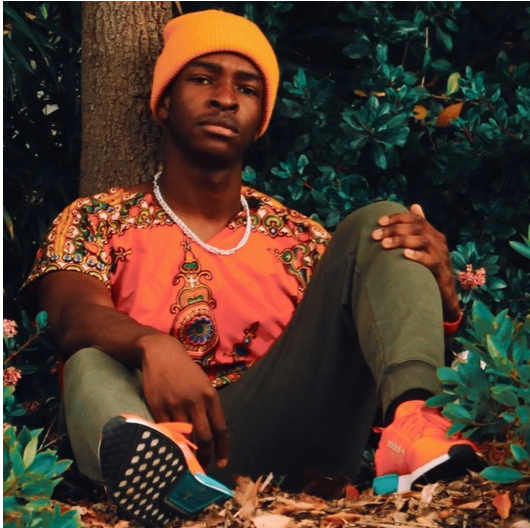
John Okhiulu ’21 is a poet, photographer and a musician majoring in African and African American studies and Human biology. Through various artistic mediums (moving images, words and music) and on multiple platforms (blog, website, YouTube and social media), John chronicles the present with an eye towards the future. His work will be to combine the power of poetry with the musical, magical spirit of conjure practice to create a music video that highlights the traditions and heritage of hip-hop, soul and afrofusion’s shared legacies. The artist notes: “As I committed to a course of study that interrogates race and gender as vehicles of harm and discrimination, I introduced the same commitment in my day to day walk and talk.”
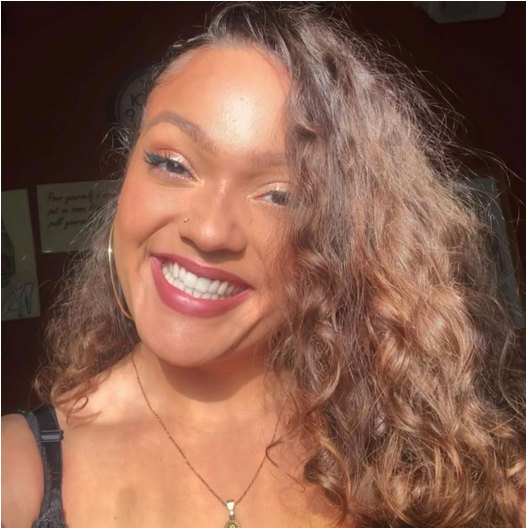
Linda Sol ’21 is a rapper and poet with an already impressive list of music tracks under her belt. An Urban Studies major, Linda’s music aims to find balance between art that pushes the boundaries of social justice and art for its own inherent beauty and the joy it brings. For her project, Linda will be creating an EP centered around Puerto Rican migration, serial displacement, cultural preservation, Chicago, and identity. Her EP project is continuously inspired by her own journey with identity and her senior research. The artist notes: “I’ve focused my senior project around this conversation to first explore the antiblackness that pervades my family and neighborhood, and second to unpack the different sociopolitical forces that shape people’s understanding of race, ethnicity, and nationality.
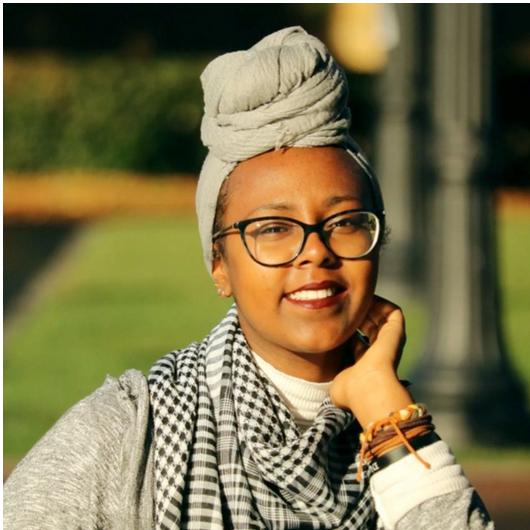
Faatimah Solomon ’21 is a writer and poet majoring in African and African American Studies and Human Biology. She will create an arts archival document about Sudanese diasporic communities with a focus on the poetics and realities of revolution, exile, and family. This will be a kaleidoscopic collection of stories, sounds, and photographs, along with her own poems about exiled diasporic communities and experiences. On how she is undoing racism in her daily life, she states: “I do this by reminding myself and my family that while we are indigenous to other lands, we are arrivants and potentially settlers on Turtle Island who benefit from US settler-colonialism. I try to remind myself that undoing anti-Black and anti-Indigenous racism are active, life-long commitments, that are essential for global indigenous and Black solidarity and liberation.”
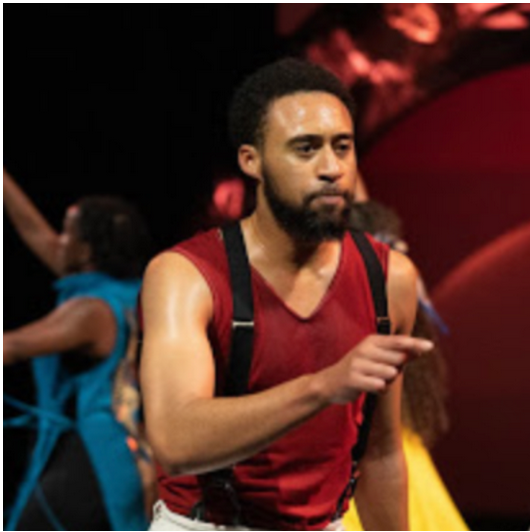
Luke Williams is a graduate student in the Modern Thought & Literature in the School of Humanities & Sciences. His research aims to examine sociopolitical possibilities through a corporeal framework. Grounded within dance studies, Luke seeks to explore the power contained in the body. He draws upon the rich traditions of Black Cultural Studies, Performance Studies, and African-American Literature. He states: “This year, I am developing my artistic philosophy around inquiry by attempting to find the crosshatches where my theoretical reading for oral examinations intersects my artist practice.” His current project is a continuation of the questions he explored last year in his original play, Against the Jagged Grain, which focused on his relationship with his father, mother and his own inherited patriarchal sensibilities.
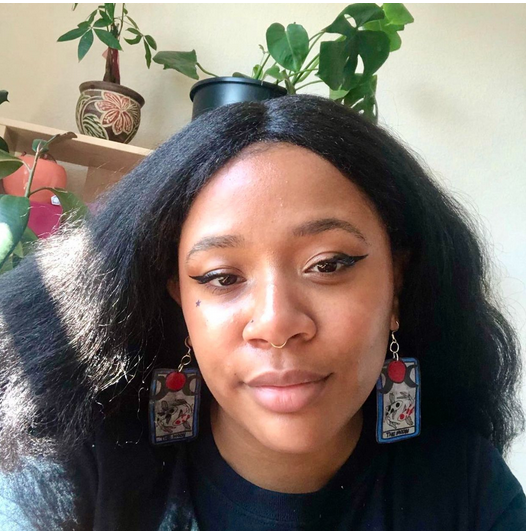
Jamayka Young ’21 is a poet and painter majoring in African and African American Studies. Jamayka will be working on a text/performance that combines poetry, visual art, theory, spirit work and performance drawn from Black American identity formation and culture, the Black American practice of Hoodoo, Black Anti-Capitalist Feminism, community healing, queer theory and land work. The practice of undoing racism in their life includes meditating, connecting with ancestors, cooking food that tastes like home, gardening and learning from family and community elders here and abroad. The artist states: “I think of art as holistic, it’s how I relate to family, how I imagine community, how I understand theory and praxis, how I process emotions, how I understand spirit and communicate with my ancestors. Art practice for me becomes a tool for community and spiritual practice, and an extension of how I imagine my place in the world.”
